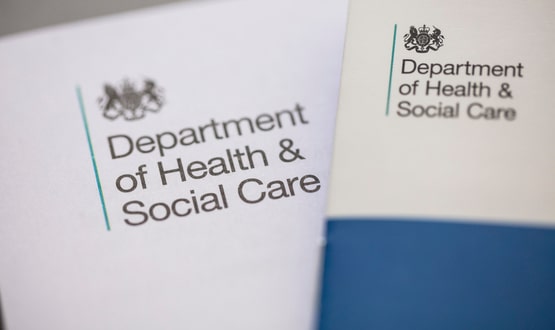Unreliable contact-tracing apps ‘could provide false sense of security’

Unreliable contact-tracing apps could provide a false sense of security and increase the spread of Covid-19, the chair of the NHSX app ethics advisory board has warned.
Widespread testing should be incorporated into the app “as soon as reasonably possible” to increase public confidence and ensure the apps effectiveness, according to the board.
In a letter to health secretary Matt Hancock on April 24, before a trial of the app was launched on the Isle of Wight, Jonathon Montgomery raised concerns about the risk of false positives from an app relying solely on self-reporting of symptoms.
He also stressed the need to be open and transparent with the public to maintain trust in the technology to ensure widespread uptake. The letter wasn’t published until this week.
The letter details concerns raised by focus groups and ethics advisory board members about the reliability of an app based on self-reporting, which could result in “false positive alerts could undermine trust in the app and cause undue stress to users”.
“The impact of false negatives was an additional concern, particularly that users may develop a false sense of security. This possibility underlines the importance of clarity and effective communication,” the letter states.
“But we would also caution against proceeding with the app without widespread access to virological testing. It is our view that introducing widespread testing and incorporating this into the app as soon as reasonably possible would significantly increase both confidence in the app and its efficacy, as users will be more likely to follow its advice.”
The advisory board set out six key principles to ensure the Covid-19 contact-tracing app is ethical. They are value; impact; security and privacy; accountability; transparency; and control.
The Department of Health and Social Care also published a response this week, detailing how it would address the six values.
It detailed a commitment for the app to be “simple and easy to use with appropriately worded advice and alerts”, but did not address concerns about false positives and the need for testing.
More on Covid-19 contact tracing apps
- NHSX sets up ethics advisory board to oversee contact-tracing app
- Contact-tracing apps could ‘catastrophically’ hamper trust, academics warn
- NHSX differs with Apple and Google over contact-tracing app
- Data from NHS contact-tracing app ‘to be kept for research purposes’
- NHSX ‘working on second tracing app using Apple and Google tech’
- Google Analytics trackers in contact-tracing app code ‘risks re-identification’
- NHS contact-tracing app ‘falls short of data protection law’
It comes as reports suggest the ethics advisory board is at odds over whether it has the authority to tell the government to abandon its centralised version and switch to the decentralised model offered by Apple and Google.
At a weekly meeting of the board on 14 May the merits of a centralised versus decentralised approach with some board members frustrated they weren’t told about the development of a second contact-tracing app using Apple and Google’s technology, according to the Guardian.
Board members told the publication they were only shown a draft of a legal document assessing the apps potential privacy impacts, and were not shown the final version until after it was published.
The second app is being developed “in parallel” with the currently available version.
NHSX has faced fierce criticism from privacy campaigners and experts over its decision to opt for a centralised model due to concerns it risks privacy.
Matthew Gould, NHSX chief executive, has maintained a centralised approach offers benefits for tracing the virus without impacting privacy.
The board were also frustrated the letter detailing six key ethical principles to ensure effectiveness of the app, sent to Hancock in April, was not publicly available for several weeks, the Guardian reported.
The failure to communicate the letter is seemingly at loggerheads with the Department of Health and Social Care and NHSX’s commitment to being open and transparent in developing the app.
Some board members have raised concerns the lack of transparency and communication has hindered their ability to carry out oversight of the app.




